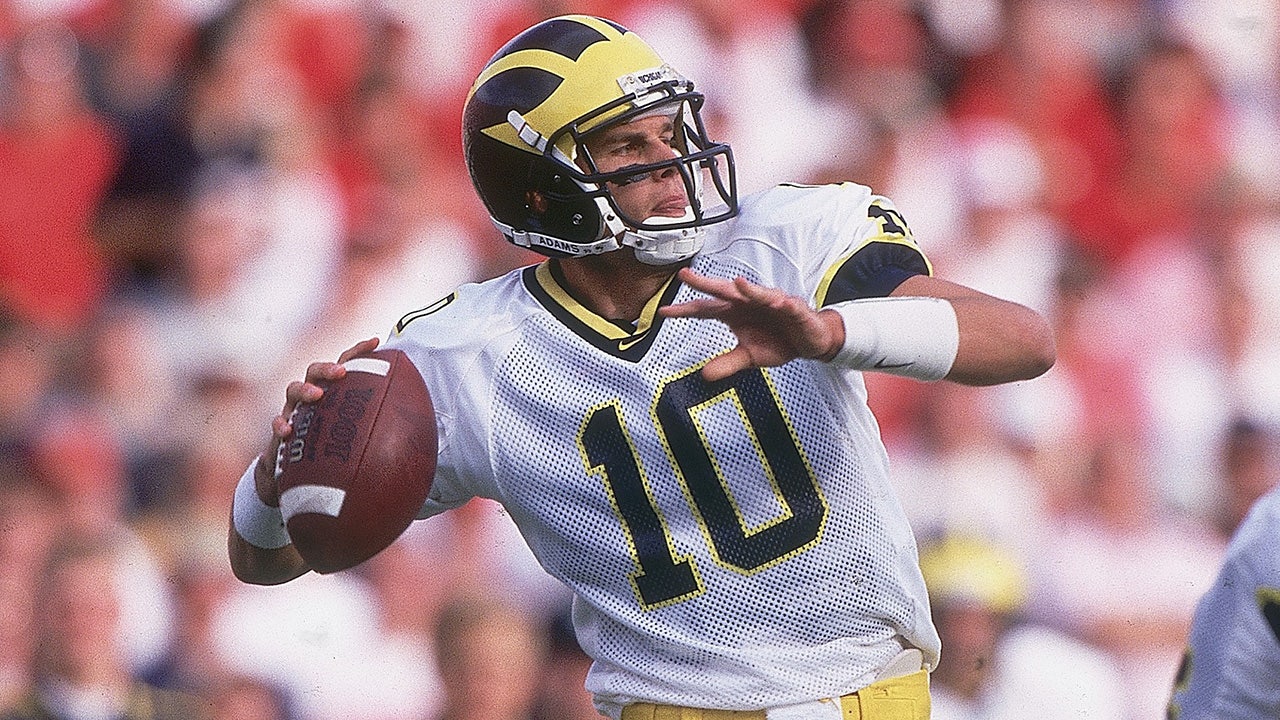Mahin Barker said soccer moms keep her on her toes at her store in West Lake Hills on the outskirts of Austin, Texas. They come in nearly every day and they’re keen to shop.
“They have a lot of time and disposable income to spend so we have to keep our merchandise fresh because they’re here so often,” she said.
The store she runs is an Ace Hardware.
The 100-year-old, Oak Brook, Illinois-based hardware chain, which has permeated America’s smaller neighborhoods with more than 5,000 locations, appears to be pulling in shoppers even as its big-box hardware rivals Home Depot and Lowe’s are struggling to do the same.
One indicator is how frequently people are heading to Ace Hardware versus its competitors.
Monthly customer traffic to Ace Hardware locations is up so far this year versus a year ago, compared to mostly dropping shopper traffic every month to Home Depot and Lowe’s stores over the same period, according to Placer. ai, which uses location data from mobile devices to estimate visits to specific retailer locations.
Also, all three retailers reported their quarterly sales this month and it wasn’t a pretty picture for the industry Goliaths. Home Depot’s same-store sales (or sales at stores open at least a year) in the US fell 3.2% in its latest quarter both as shoppers pulled back on remodels and renovations and also on discretionary decorative-type purchases to spruce up their homes. Home Depot’s stock price is down 5% so far in 2024.
Lowe’s sales at stores open at least a year fell a steep 4.1% in its latest quarter for similar reasons. Lowe’s stock price has dipped 7% in the past month.
“The danger here is that while Home Depot has a commanding position, it faces much more competition on the light-side improvement space from smaller improvement players, garden centers, and specialists like Sherwin Williams in categories like paint,” Neil Saunders, retail analyst and managing director at Globaldata Retail, wrote in a note last week.
“Consumers are now shopping around more to find the best bargains and deals,” he said.
These trends appear to be working in Ace Hardware’s favor. The hardware chain saw a small increase in its US same-store sales in its most recent quarter and a 1.1% increase in the average amount people spent per store trip. Total revenue for the company systemwide rose 2.5% in the period from a year ago. It expects to open 200 new stores in 2024.
Small and mighty stores
Ace Hardware’s store setup — smaller-sized shops of 7,000 to 10,000 square feet on average — situated within communities and selling much more than just nuts, bolts and paint are resonating with the evolving shopping psyche of today’s rushed consumers, industry watchers said. Each store carries about 25,000 to 30,000 unique products.
“It’s an interesting phenomenon,” said Michael Brown, partner in consulting firm Kearney’s consumer products and retail practice.
“Ace is your local customized, intimate hardware store where I can go in, get something very quickly, talk to people that I know. It’s also close to home and I can easily meet my small project needs,” he said.
Home Depot and Lowe’s, by contrast, cater to the contractor or the homeowner doing big remodeling work. And while bigger home renovation projects have slowed in recent months, those larger hardware stores have suffered sales declines. Ace, meanwhile, benefits as people turn to smaller fix-it projects, he said.
“They’re positioned quite well now geographically to service the needs of the consumer today,” he said. “They’ve build a unique niche and their stores are also bringing a local flavor to them.”

Barker is owner and operator of five Breed & Co Ace Hardware locations in the Austin, Texas, area. The West Lake Hills store, in particular, is popular with women.
While the store stocks typical hardware needs such as screws, drill bits and hammers, Barker goes to great lengths to offer the unexpected.
“I like to call it a boutique atmosphere,” she said. She said upper-income customers have expectations of better service. “If you want to continue to have that consistent repeat business you got to give them what they want.”
In addition to hardware and garden products, the housewares section offers a wedding registry. “It’s a very unique proposition because we don’t have a lot of competition in terms of local, relevant and differentiated retailing here,” Barker said.
The registry idea arose from a local need. “We noticed that a lot of brides don’t necessarily want to get what Aunt May buys for them,” she said. Engaged couples, she said, sometimes prefer picking items such as a grill or plants. So we’ve really beefed up that side of the business to stay relevant to our customers.”
Jewelry is a top seller, too, as are pricey Le Crueset pots and pans, Nest candles, baby products such as plush toys, baby onesie pajamas and truffle chocolates.
“We sell a ton of Le Crueset. It’s one of our top performers,” Barker said. “Many of our customers are grandparents going to a baby shower and they need a gift. We count on people coming in everyday to buy a gift item from us.”
This hybrid hardware-home goods-curio model is setting Ace Hardware stores apart.
“Consumers are looking for new places to shop,” Brown said. “We’ve lost places like Bed Bath & Beyond and Linens ‘n Things, where you go to buy a curtain rod or smaller home needs. Ace is nicely filling that void.”
Ace Hardware, with its catchy jingle “Ace is the place with the helpful hardware folks,” was founded in 1924 by a group of four Chicago hardware store owners. It operates a unique structure in which only 4% of its more than 6,000 worldwide stores are company owned.
The retailer, instead runs as a retail-owned cooperative, which means individual store operators are also part owners, making them independent entrepreneurs. “They are essentially shareholders, they own the brand and the company,” said Kim Lefko, chief marketing officer of Ace Hardware.
Individual store owners, who make up more than 90% of the business, select products in two ways: They can order and stock national brands and private label products in bulk at a lower price directly from Ace Hardware’s warehouses. They also have the flexibility to curate about 20% of the merchandise mix to suit local tastes and needs by ordering directly from other vendors, Lefko said.

“During the post World War I era, the four business owners much like today wanted to be competitive in the marketplace. They got together and the very first product they bought was a truckload of sponges so they could be price competitive,” said Lefko. “This really is the co-op structure. It keeps us competitive against the like of Home Depot and Lowe’s, together with the ability to also tailor the products to what the local community needs.”
But all stores are still unified under Ace’s national marketing and advertising effort, she said. Ace is pushing innovation with the brand, too. It just launched its first Ace-branded food product, a line of BBQ sauces, and a collection of Ace Hardware vintage-inspired clothing.
Legendary NFL coach and broadcaster John Madden served as a pitchman for Ace Hardware for more than 20 years while his NFL broadcast partner Pat Summerall was a pitchman for rival hardware chain, True Value.
In many of the same neighborhoods, Ace Hardware has gone head-to-head with True Value, which operated a similar model to Ace for many years, a cooperative partly owned by its roughly 4,000 store owners. Private equity firm Acon Investments purchased True Value in 2018 and ended its time as cooperative retail chain.
Michael Wynn, owner of Sunshine Ace Hardware with 12 locations in the Southern Florida area, is catering to a different demographic in his community –- fishermen.

Among the locally curated products he stocks next to plumbing, electrical supplies and hardware are fishing gear — reels, rods, tackles and Yeti coolers. “We have the largest assortment in southwest Florida,” he said. “But we also sell homemade fudge and Vera Bradley bags and pouches.”
“People are time starved. They want quick and convenient shopping experience and we’re trying to give them that,” Wynn said, whose grandfather founded the first Sunshine Ace in 1958. So he added a drive-thru window in one of his newer stores.
He’s glad he did. He said a customer recently pulled up to pick up an order but his child was agitated and made it difficult for the man to come into the store.
“So he requested that the store clerk bring the order to him,” said Wynn. “This for me is a big part of why we try to offer unique services and look out for our customers.”
Read the full article here











